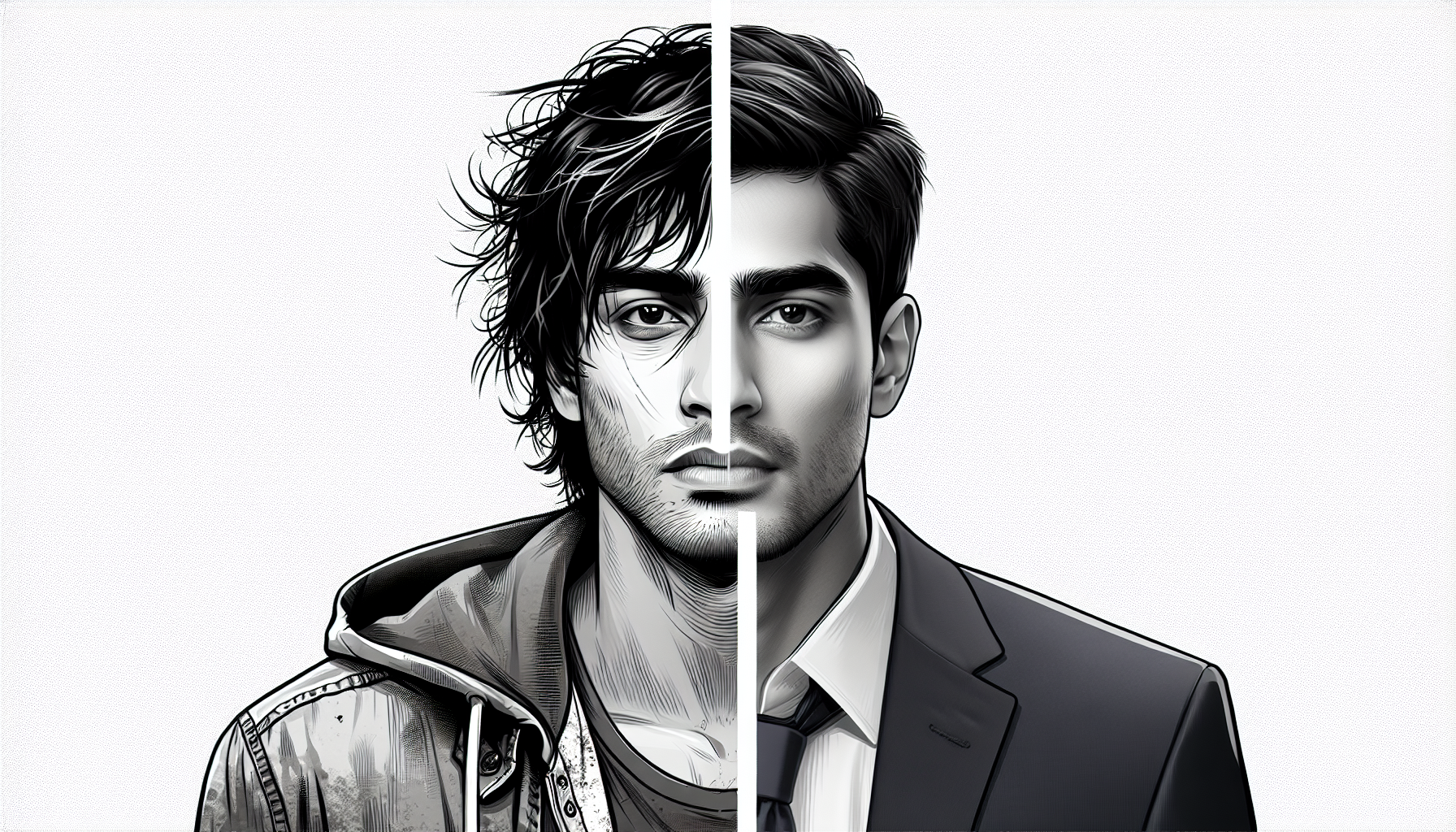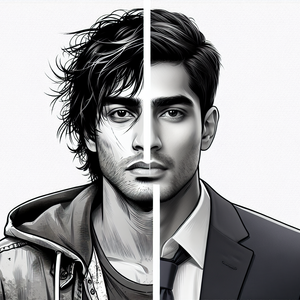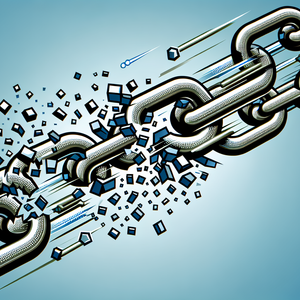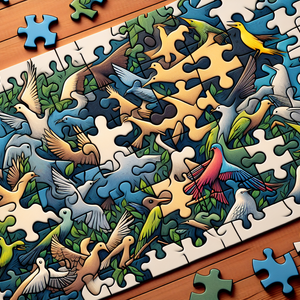Makeup as a Cultural Canvas: Celebrating Diversity Through Beauty

The history of makeup is rich and varied, tracing back thousands of years. In Ancient Egypt, both men and women used kohl, a mixture of galena and other minerals, to accentuate their eyes. This practice had practical purposes, as it was believed to protect against infections and the harsh sun, while also serving spiritual functions by warding off the evil eye. Similarly, in Ancient Rome, cosmetics were used not only for beautification but also to signify social status, with certain colors and ingredients reserved for the elite. In the East, the traditional Japanese Geisha makeup is another prime example. Characterized by stark white face paint, red lips, and intricate eye designs, this makeup reflects grace and the rich cultural heritage of Japan. Each element of the Geisha's makeup has profound symbolic meaning, expressing the wearer's status, artistry, and adherence to cultural traditions. These historical practices highlight how makeup has been a significant medium for cultural storytelling throughout the ages.
Cultural Significance: Beyond Aesthetics
Makeup often serves as a vessel of cultural significance, extending far beyond mere beauty enhancement. In many Indigenous cultures, the use of natural pigments for body paint represents a connection to the earth and ancestral spirits. For example, Native American tribes incorporate specific colors and patterns during rituals, signifying identity, social roles, and spiritual beliefs. This practice emphasizes the importance of makeup as a storytelling tool that reinforces communal ties and identity. In African cultures, intricate body art and face painting are employed during ceremonies to signify rites of passage, social status, or tribal affiliation. The colors and designs used often have deep-rooted meanings, celebrating cultural heritage while fostering a sense of belonging within the community. Such practices underscore the notion that makeup is not merely an accessory but a profound expression of identity and tradition.
Modern Interpretations and Global Influence
As globalization has accelerated, beauty standards have evolved, heavily influenced by social media platforms such as Instagram and TikTok. These platforms have allowed makeup artists from diverse backgrounds to showcase their cultural practices, blending traditional techniques with contemporary trends. This cultural exchange has led to the rise of a more inclusive beauty narrative, giving voice to those who celebrate diversity in makeup. However, this blending comes with its challenges. The resurgence of certain cultural symbols, such as the bindi, in Western beauty trends has sparked debates on cultural appropriation and respect for cultural significance. This highlights the need for sensitivity and understanding when celebrating beauty across cultures. The fusion of styles illustrates the potential for cultural exchange, but it also emphasizes the importance of honoring the origins and meanings behind these practices.
Empowerment Through Makeup
Makeup has increasingly become a tool for empowerment, particularly within marginalized communities. For many individuals, it serves as a form of self-expression and a means of reclaiming their identity. The LGBTQ+ community, for instance, has embraced makeup as a way to challenge traditional gender norms and explore personal aesthetics. Drag culture exemplifies this liberation, showcasing extravagant makeup and performances that allow individuals to express their true selves boldly. Moreover, the beauty industry is shifting towards promoting body positivity and inclusivity. Brands are now featuring models of various ethnic backgrounds, body types, and ages, encouraging consumers to embrace their uniqueness. This evolution fosters a broader understanding of beauty that resonates with a diverse audience, making makeup a celebration of individuality rather than conformity.
Makeup, as a cultural canvas, reveals the richness of human expression and identity across the globe. It tells intricate stories of tradition, spirituality, and empowerment while evolving alongside societal changes. By exploring the diverse ways makeup is utilized around the world, we gain a deeper appreciation for its significance in shaping cultural narratives. As we celebrate these differences, we can foster an inclusive beauty landscape that honors and respects the myriad ways individuals choose to express themselves. Embracing makeup as a form of cultural expression enriches our understanding of beauty and encourages us to appreciate the vibrant diversity that exists within our global community.
Cultural Makeup Artist
Cultural organizations, museums, film production companies, educational institutions
Job Description
Develop and execute makeup looks that reflect specific cultural practices and traditions.
Collaborate with cultural consultants to ensure authenticity and respect for cultural significance.
Facilitate workshops and demonstrations to educate others about the cultural aspects of makeup.
Unique Skills Required
Deep understanding of diverse cultural practices
Sensitivity to cultural appropriation
Strong artistic skills in makeup application
Beauty Brand Diversity Consultant
Cosmetic companies, marketing agencies, diversity-focused organizations
Job Description
Advise beauty brands on how to create inclusive marketing campaigns that celebrate diversity.
Conduct market research to understand the needs and preferences of diverse consumer demographics.
Create guidelines for product development to ensure representation and inclusivity.
Unique Skills Required
Experience in marketing
Strong communication skills
Background in sociology or cultural studies
Makeup Educator
Beauty schools, community colleges, online education platforms
Job Description
Design and teach courses on makeup application techniques and cultural significance in beauty practices.
Mentor aspiring makeup artists, emphasizing the importance of diversity and cultural sensitivity in their work.
Develop curriculum that incorporates historical and contemporary makeup practices from around the world.
Unique Skills Required
Teaching experience
In-depth knowledge of makeup techniques
Understanding of cultural context in beauty
Social Media Beauty Influencer
Personal brand, beauty brands, marketing firms
Job Description
Create and share content that highlights diverse makeup techniques and cultural beauty practices on platforms like Instagram and TikTok.
Engage with followers to foster community discussions around beauty standards and representation.
Collaborate with brands to promote products that align with inclusive beauty values.
Unique Skills Required
Strong social media presence
Video production skills
Ability to communicate cultural narratives effectively
Ethnic Cosmetics Product Developer
Cosmetic companies, skincare brands, beauty startups
Job Description
Research and develop cosmetic products tailored to specific ethnic skin tones and beauty needs.
Collaborate with marketing teams to ensure products are marketed in a culturally sensitive manner.
Conduct consumer testing within diverse communities to gather feedback and refine products.
Unique Skills Required
Knowledge of cosmetic chemistry
Experience in product development
Cultural competence in beauty practices


